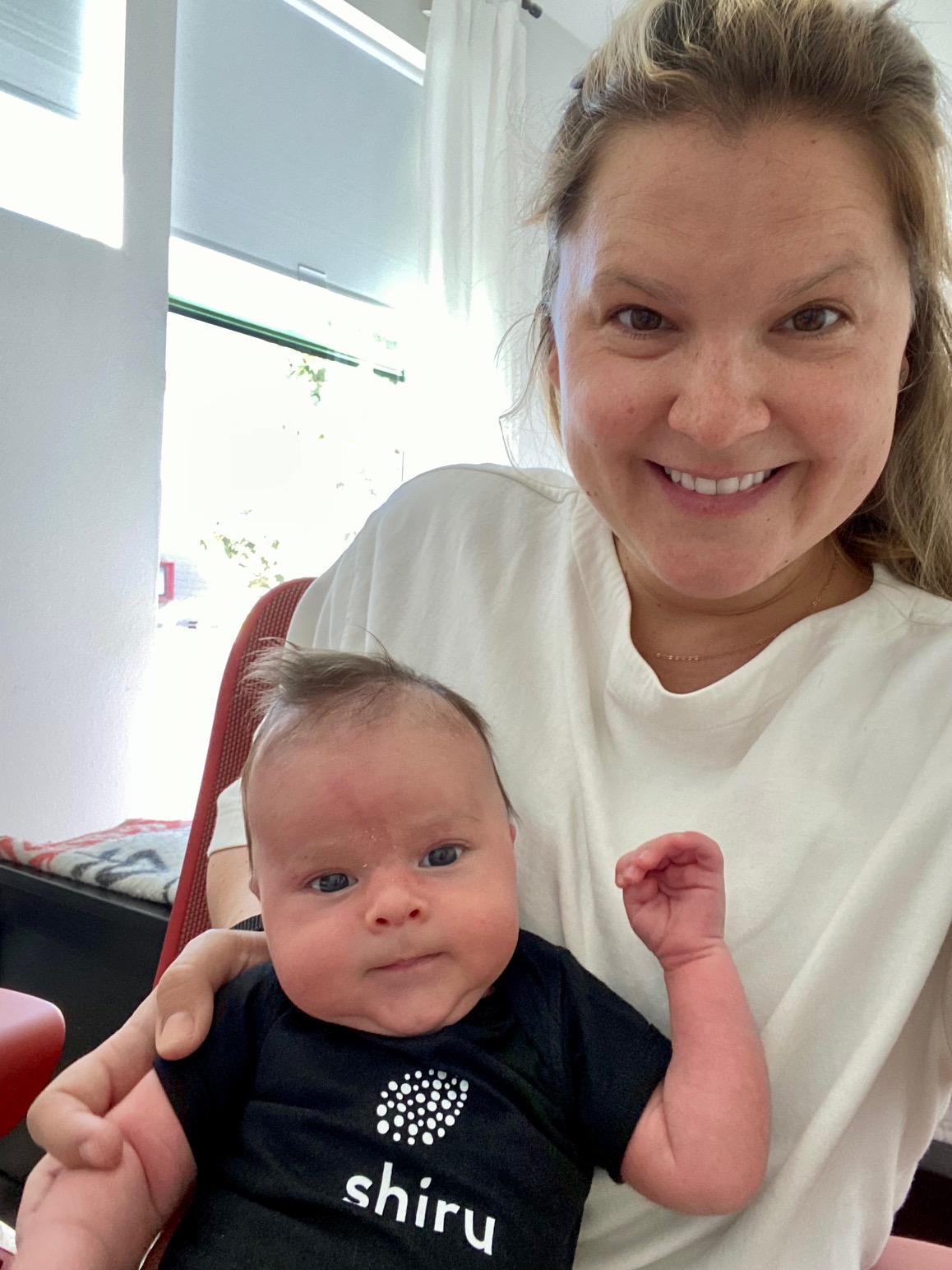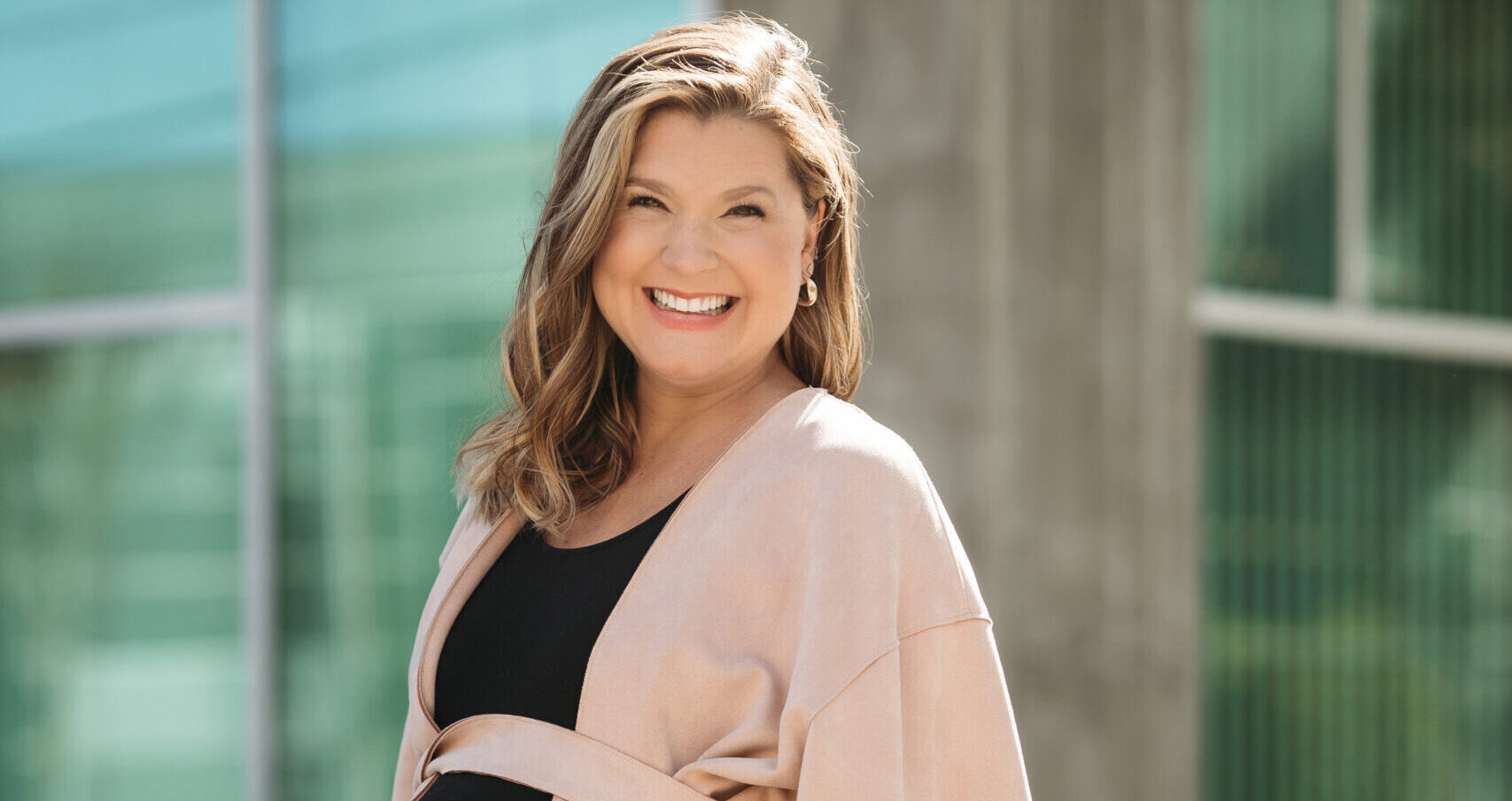This article is a bit late, but you’ll have to forgive me: I gave birth to my son, Milo, just eight short weeks ago.
My husband, Carlos, my 2.5-year-old daughter Seija, and I are all enchanted by Milo, and he’s turned our world upside down. I feel very fortunate and proud to share that I took maternity leave to spend time with him, which has had huge significance for my family and me.
Remarkably, my leave was supported and encouraged by Shiru’s leadership team and our board. (Yes, I shared this news with my investors, despite troubling advice from some to hide my pregnancy entirely! Are we not in 2022?)
I closed Shiru’s seed round when I was eight months pregnant with Seija, and I celebrated Shiru’s three-year anniversary just a month after Milo was born. So I have the unique experience of deciding what benefits and policies would best support our employees during one of the most special and stressful moments in their lives, while also living through that moment twice myself.

(The parallels of growing a business and raising babies are uncanny – but that’s the subject of another post!)
At Shiru, it’s important to us to support our extraordinary employees by not only offering a leave policy that values them and their families but also to model it. I’m grateful to have had a hand in both those activities, and I’m happy to share Shiru’s leave policy with you here and why it’s important.
We recognize that we are nothing without our people, who are multidimensional and have highly sought-after skill sets. The competition for their talent is fierce. We think the argument that a generous leave policy is too expensive doesn’t hold water: it’s more expensive to lose talent to companies that better support a holistic existence — especially for a startup!
This is a big reason why building a culture of investing in our employees and creating a diverse and equitable team has been a top priority since the day I started Shiru. We’re proud to offer our team an industry-leading family leave policy:
- 16 weeks paid leave at 100 % salary for all parents that can be taken non-consecutively during the first year after birth/adoption
- Flexible schedules, hybrid remote/on site work options and unlimited PTO to support all employees at all times, including leading up to the due date and upon return to work after taking leave
- 15 days of company holidays throughout the year where the entire company takes a break and employees can spend the time off however they’d like
Yes, that’s “family leave”, not “maternity leave”. My ability to be good at everything from business strategy and planning to bedtime lullabies and cutting tiny nails depends on an equal partnership with my husband. At Shiru, we believe the benefit to moms and dads needs to be equal for the work to be considered equal.
What happens when we support men and women equally, providing the same benefits for the same work? More women stay in the workforce, and more men actively participate in raising their kids and better appreciate what a woman faces during this time. The result: more progress and compassion at work.
What happens when people in all positions in a company feel comfortable taking time to dedicate to their families? I have the unique opportunity to be building Shiru at the same point in my life that my family is growing, which is hugely rewarding and also the biggest challenge I’ve ever given myself, on both fronts. As a mother, CEO, and founder, I believe one of the most powerful things I can do to help build an equitable workforce is to model a healthy work-life balance myself. The audacity to believe I can strike that balance in such demanding roles isn’t lost on me. But if I can attempt it, my hope is that many others will feel it’s attainable as well.
Along those lines, I also believe that women entrepreneurs would benefit from more examples of ladies who have chosen to start businesses and families without having to compromise one or the other. Prior to having my daughter Seija, I used to look at entrepreneur moms as wizards, and I hoped to absorb as much of their magical abilities as possible. Having mother entrepreneurs more numerous and visible would not only create many more women-led businesses but also expose male investors and founders to the importance of building in more equality overall — something that’s sorely needed.
I was six months pregnant with Seija at Y Combinator’s 2019 Demo Day, a grueling 12-hour day of pitching to over 1000 investors. There were no seats for the entrepreneurs in the entire venue, and only alcoholic drinks were served after the event. I was exhausted and dehydrated, making it really tough to be on my A game.
I’ve had more conversations than I’d like to count with male founders who say things like, “Oh you have a kid? Being a founder must be hard for you. I have three kids, and when I started my company my wife stopped working to take care of them.”
So, yes, it would be great if more companies followed in Shiru’s footsteps and valued the contributions of men and women equally.
Shiru’s family leave policy is incredibly personal for me, and it has been critical for my family. My leave this time around has been lovely — and challenging. Feeding Milo every 2-3 hours, entertaining my toddler, and maintaining peace at home all while fighting off FOMO for all the excitement happening at Shiru hasn’t been a walk in the park. Personally, I am very happy to be returning to work, and I admit it’s a very welcome break from the hard and constant work of caring for a newborn. While I haven’t yet taken my full allotted leave, I have done what’s felt right for me and my family. My gratitude for the support and flexibility to do what has made me feel best, both at home and from my colleagues and Shiru’s board, cannot be overstated.
I hope my experience has convinced you why every company should have a strong and equitable leave policy. If you’re a founder, CEO, or HR partner in a position to craft these policies and have questions or are seeking advice on how to do this, please come talk to us — we’re happy to share what we know.
This piece originally appeared on Shiru, and was published here with permission.

